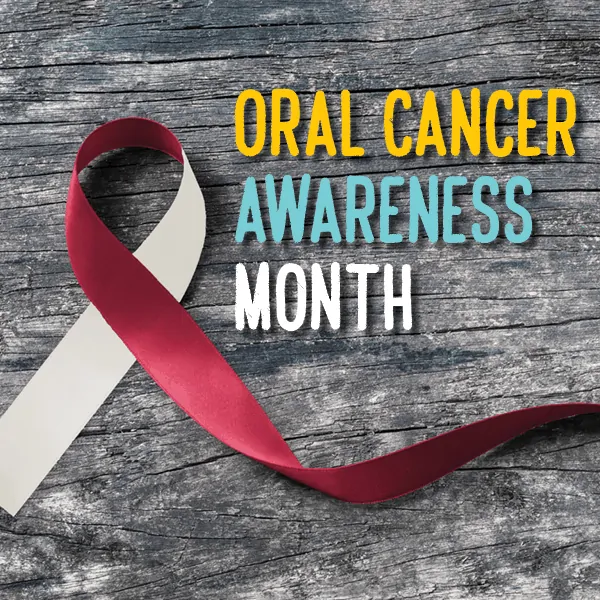Why You Should Always Wear a Mouthguard When Playing Sports

April is recognized as National Facial Protection Month and serves to promote the importance of wearing proper mouth protection during sports. At our dental office in Douglasville, this is a topic we want to talk about in hopes that we can help guard our patients’ smiles from the dangers of contact sports. Join us as we cover some of the most important reasons you should always wear a mouthguard when hitting the court or field.
Sport Injuries by the Numbers
Participating in sports can benefit us in a lot of ways. Sports help keep us active and healthy, and they build strong team and communication skills. But there’s always the risk of injury. While injuries can affect even the best, most experienced athletes, an alarming amount of sports injuries happen to children. In fact, a study published by Johns Hopkins concluded that over 3.5 million kids under age 15 sustain an injury while playing a sport or participating in a similar activity. Of course a lot of sport injuries result in a sprain, strain, or even broken bones, but what’s most concerning to your dentist in Douglasville is that many of these injuries are to the face or head.
Who Has the Biggest Risk?
Even though any athlete can get hurt, there are some sports that put you at increased risk for a mouth injury. Any contact sport such as football, soccer, or basketball poses the biggest chance for a mouth injury, but which sport sees the most? The answer may surprise you. According to a study published by dentalcare.com and two research dentists, basketball has the highest mouth injury rate in both men and women. This could be in part to the fact that a mouthguard is not always required. However, the American Dental Association recommends wearing a mouthguard, even if it’s not in the rulebook. Besides protecting teeth against chips, breaks, or being totally knocked out, mouthguards can help reduce the risk of concussion, too.
Different Types of Mouthguards
There are typically two types of mouthguards — the boil-and-bite variety found in sporting goods stores and custom-made mouthguards created by a dentist. The stock mouthguards you can buy at stores are better than nothing, but they’re usually uncomfortable, don’t fit as snugly as they should, and oftentimes spend more time being chewed on than protecting teeth. The best way to protect teeth while playing sports is by getting a custom-made mouthguard. These professional-grade sports mouthguards are molded to fit around each and every tooth and are really comfortable. Speaking with them in is easier than a boil-and-bite guard, too.
Before you or your child gears up for a sporting event, make sure you have a well fitting mouthguard and be committed to wearing it every time for the whole game. If you want the ultimate in mouth protection, we welcome you to call our Douglasville dental office to discuss the best sports mouthguard for you.
How a Dental Checkup Can Save Your Life

Oral cancer diagnosis is on the rise with an estimated 51,540 new cases expected in 2018. At our dental office in Douglasville, we understand how serious this life threatening disease is. In fact, the American Cancer Society projects that over 10,000 people in the United States will die from it this year. However, while oral cancer can lead to death, the five-year survival rate is 65%. Part of what contributes to this relatively high chance of survival is due to early diagnosis. During this Oral Cancer Awareness Month, we’d like to help raise awareness by sharing the importance of regular dental checkups that just might save your life.
Early Diagnosis Means Higher Chance of Survival
Oral cancer can be treated successfully. But the chance of survival greatly increases if the disease is caught in the early stages before the cancer has a chance to spread. According to the American Cancer Society, survival rates for different types of oral cancer vary depending on how much time its had to progress. They classify these progressions into three stages including:
- Local – Meaning the cancer has only affect the area which it started.
- Regional – This term is used for cancer that has spread to other tissues close by the original infection site.
- Distant – Cancer classified as distant has spread even farther to more areas of the body.
Some of the most common areas affected by oral cancer, along with their various five-year survival rates based on the stages listed above can be found in the table below, courtesy of the American Cancer Society.
| Lip | Tongue | Floor of the Mouth | |
| Local | 93% | 78% | 75% |
| Regional | 48% | 63% | 38% |
| Distant | 52% | 36% | 20% |
How To Catch Oral Cancer Early
The most effective way to diagnose oral cancer early when treatment is more successful is by recognizing the signs. Some of the most common signs of oral cancer include:
- A sore in the mouth that doesn’t go away and bleeds easily
- A chronic white or red area
- Difficulty swallowing, chewing, or moving the tongue
- A lump on the cheek, tongue, or throat
- Coughing up blood
Additionally, seeing your dentist in Douglasville at least every six months can proactively monitor your overall oral health, including screening for oral cancer. Your dental team is trained to look for any areas that may be concerning. Regular dental checkups can help catch oral cancer early so that you can get treatment as soon as possible in order to increase your chances of beating it.
If you notice any potential problem areas or it’s just been awhile since you’ve been to the dentist, we’re always welcoming new patients and encourage you to call our Douglasville dental office to schedule an appointment. We’re dedicated to protecting your smile and your overall health.



